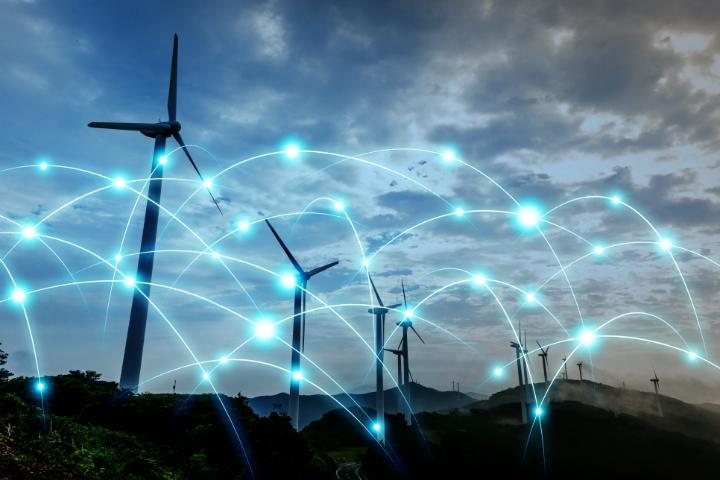Energy and Smart Grid Research Group
Secure, reliable, affordable, clean and equitable energy supply is fundamental to global economic growth and human development. The World Energy Council has predicted a substantial rise in the global energy demand mainly driven by economic growth of non-OECD countries like China, Brazil and India. Due to the rise of energy demand in recent years both for urban and rural areas and the rise in fossil fuel tariff, there is a need to maximise the utilisation of the energy infrastructure and all its resources to ensure a sustainable electricity supply.
Advances in power electronics, monitoring systems, sensor technology, communication systems, data analytics, and smart metering have led to the evolution of the Smart Grid where the resources and demand can be better managed. Smart Grid technology facilitates the integration of energy storage and renewables with the grid to ensure sustainability of electricity supply, mitigate rising power outages and help meet the rapidly rising demand for clean energy in urban and rural areas.
The purpose of the group is to promote and encourage smart grid research and innovations. Our current research interests include: virtual power plants, renewable and storage integration, planning & operations, cyber security and privacy, and energy efficient communications. The key work in the group is to develop innovative technology within the framework of the emerging Smart Grid theme.

Research areas
- Future Grid Architectures
- Virtual Power Plants
- Microgrids
- Nano-Grids
- Smart grid communication systems
- 3G/4G/5G, WiMAX communications for Neighbourhood energy networks
- ZigBee, Wi-Fi, Bluetooth for home area energy networks
- DVB/Inmarsat satellite systems for wide area monitoring
- Quality of Service, RRM algorithms, to provide real time control
- Cyber Security and Prosumer Privacy for smart grid communications
- Cryptographic solutions for secure control
- Security protocols
- Risk assessment, quantification and modelling
- Secure software engineering/software testing
- Secure electronics/embedded systems for IEDs/energy management systems
- Energy Informatics
- Real-time energy big data analytics
- Semantic technology for energy information collaboration
- Artificial Intelligence for smart energy algorithms
- Planning and operation of distribution networks and Smart Grids
- Uncertainty theory applied to grid integration
- Grid optimisation
- Integration of renewables like wind, solar
- Electric vehicle integration into grid
- Modelling of transmission and distribution
- Control of distribution networks and Smart Grids
- Demand side management
- Real-time energy management
- Real-time smart scheduling
- Distributed energy storage
- Energy Market and policies
- Economics of electric energy systems
- Pricing models in energy market
- Sustainable Energy policies
- Power Electronics
- Flexible AC Transmissions Systems (FACTS)
- Advanced High Voltage Converters
Projects
- Renewable energy integration planning for sustainable communities.
- SITARA: The 2-year project named SITARA: Smart Grid to harness Satellite based Virtual Power Plants for energy sustainability, is one of 14 multilateral university partnerships which have been awarded grants by the Global Innovation Initiative in 2015; a joint effort of the UK and US to foster multilateral research collaboration with higher education institutions in Brazil, China, India and Indonesia. SITARA, with a grant of nearly £150,000, is one of eight awarded to UK-led partnerships by the British Council and the Department for Business, Innovation and Skills. The SITARA consortium includes the University of Bradford, North Carolina State University (US) and Indian Institute of Technology Madras (India).
Collaborations
- EA Technology, UK.
- Indian Institute of Technology Madras, India.
- Central Power Research Institute, India.
- Imperial College London, UK
- University of Salerno, Italy
- Powell (UK) Ltd.
- Aalborg University, Denmark
- North Carolina State University (FREEDM centre), USA
